With spring coming into full bloom, the IDHH would like to feature one of our earliest contributors, Monmouth College, and their unique collection of Greek life dance cards. Located in Western Illinois in the city of Monmouth, the college was founded in 1853 by Scotch-Irish pioneers affiliated with the Presbyterian Church. Notably, the College accepted women and students of color from its earliest days, being one of the first U.S. higher education institutions to do so. In fact, the College found itself with a primarily female student body shortly after its establishment, as virtually the entire male student body left for military service in the Civil War. Not to be outdone by the campus societies formed by male veterans returning to the College after the war, Monmouth College is home to Pi Beta Phi, the nation’s first “women’s fraternity” (what we would now call a sorority).
Spanning nearly 30 years, the Dance Card Collection is a testament to the vibrant Greek life at Monmouth College and the rich social history of groups like Pi Beta Phi and Kappa Kappa Gamma, two early sororities known as the “Monmouth Duo”. Popular in European ballrooms during the 18th century, dance cards were originally used by women to record the names of dance partners at formal balls. They typically consisted of a booklet with a decorative cover and a decorative cord by which it could be attached to the wrist or clothing. The booklet might include sections providing details about the event menu and music, patrons and other featured guests, and most importantly, blank lines where dance partners’ names could be “penciled in”. In the hands of young college students, the dance cards reflect their owner’s individual personality as well as the variety and playfulness of the dance cards created for specific dances in campus Greek life such as the Rose Formal or the Holly Hop.
Below are a few of our favorite items from the Dance Card Collection at Monmouth College:
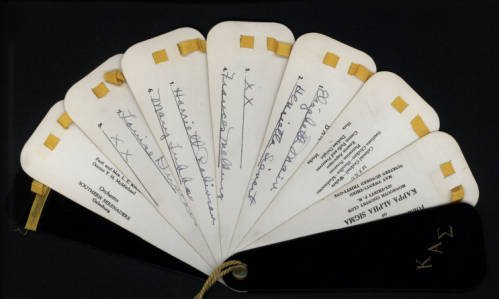
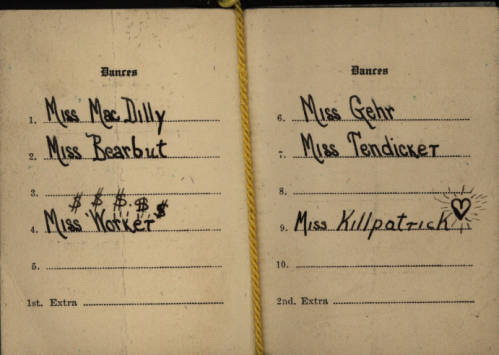
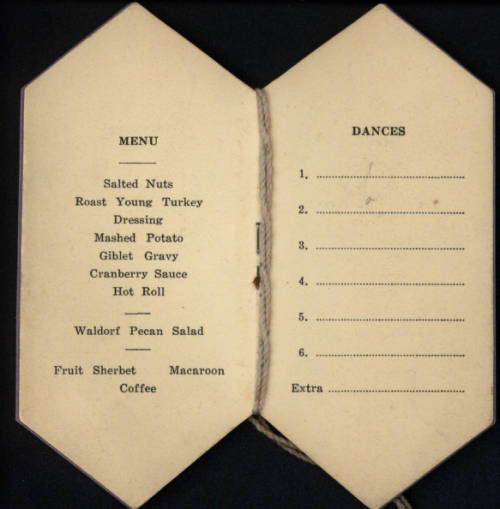

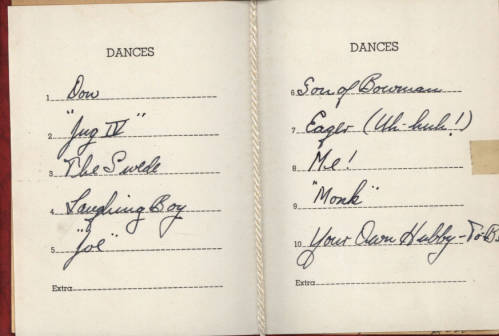
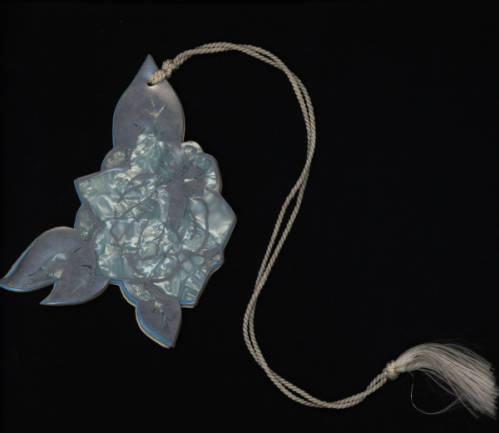
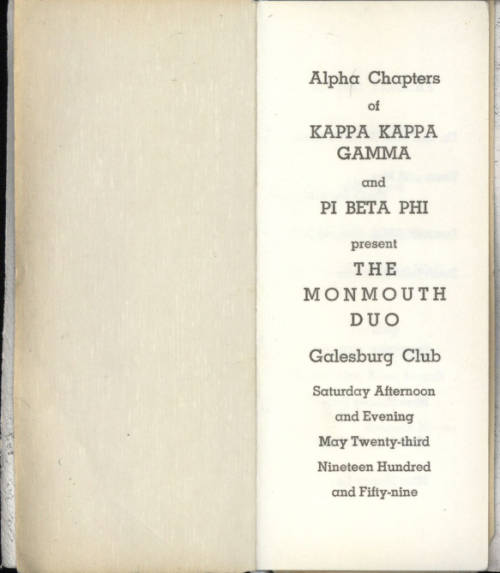
Kappa Kappa Gamma 1959. May 23, 1959. Monmouth College. Dance Card Collection. Courtesy of Monmouth College.
Want to see more?
Visit the IDHH to view even more items in the Dance Card Collection from Monmouth College, as well as items related to the pastime and art of dancing.